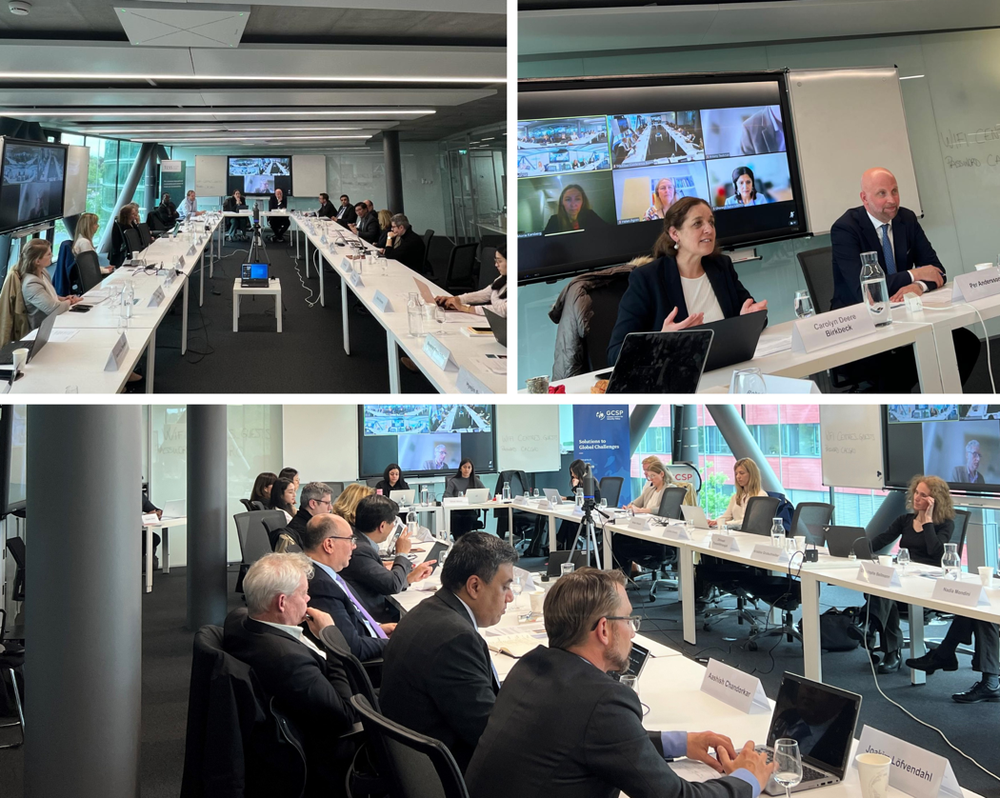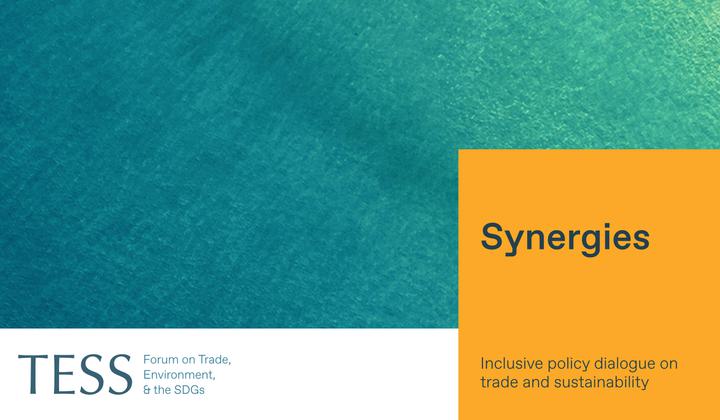On 6 May, 2024, the Leadership Group on Industry Transition (LeadIT) and TESS convened a roundtable to explore options on technology co-development for a just and equitable climate transition with a focus on heavy industry. This article summarizes the key takeways from the meeting.
A just and equitable transition to low-carbon development pathways requires diffusion and massive scaling of clean technologies. This is particularly the case for heavy industries (like steel or cement), which generate about one quarter of global carbon emissions and depend on extensive adoption of technologies such as hydrogen-based steelmaking or carbon capture, utilization, and storage for their transition to net zero. However, particularly in emerging and developing economies, the deployment of such technologies faces numerous obstacles, including high costs of both technology and capital, policy and financing challenges, as well as complexities around adaptation of new technologies to specific contexts. The urgency of these issues has resulted in increased salience of the topic of technology diffusion in international policymaking and in the establishment of a dedicated climate technology support mechanism.
With the intention of contributing to this debate through a multistakeholder dialogue bringing together views and priorities from governments, companies, and international organizations, the Leadership Group for Industry Transition (LeadIT) and the Forum on Trade, Environment, and the SDGs (TESS) jointly hosted a roundtable event to identify specific challenges and potential solutions for technology transfer and co-development in heavy industry sectors. The hybrid roundtable brought together around 40 representatives from developed, emerging, and developing economies, companies from heavy industry sectors and their respective value chains, and relevant international organizations in a discussion which yielded a rich and highly thought-provoking list of insights and ideas. Here is a snapshot of the themes that emerged.

LeadIT/TESS Technology Co-development Roundtable, Geneva Graduate Institute
Nationally Determined Contributions as a Catalyser
The next round of nationally determined contribution (NDC) updates, due in 2025, could serve as an opportunity for governments to establish priorities in terms of adoption of specific technologies, according to needs in domestic heavy industry sectors. This could help signal commitment and mobilize not only relevant corporate or public-private collaborations, but also technical and financial assistance required to develop, adopt, and scale respective technologies. Consultations with the private sector and technology needs assessments could ensure focus on the technologies best fit for the local context. Existing support frameworks (e.g. the NDC Partnership or the Climate Technology Centre and Network (CTCN) under the UNFCCC) could help countries perform such assessments and integrate respective measures into their NDCs. Existing tools such as technology mappings by the World Intellectual Property Organization (WIPO) and CTCN can be a key resource to facilitate such assistance.
Capacity to Deploy and Adapt Decarbonization Technologies, and the Importance of Endogenous Technology Development
Many decarbonization technologies need to be adjusted to specific circumstances—i.e. local production processes and respective retrofitting needs. Often technology deployment is hindered by a lack of capacity to provide such adaptation and/or to handle and maintain technologies to be adopted. Therefore, capacity building and skills development is often a critical accompanying measure to technology transfer. More broadly, education systems need to ensure availability of key skills required not only for deployment of decarbonization technologies, but also for their endogenous development and co-develompent of technologies appropriate to local circumstances, reducing the need for import of foreign assets.
Enabling Policies and Regulations: Intellectual Property Rights
Efforts to scale up and speed up the transfer and co-development of technologies critical to decarbonization of heavy industry occur in a complex policy and regulatory setting at both domestic and international levels. A core challenge for international cooperation is to foster an enabling policy environment for industrial decarbonization and just transitions that serve climate goals in the midst of competitive and security concerns. Core elements of the policy environment include international commitments and rules related to technology transfer, intellectual property, and trade in environmental goods and services (including services related to the monitoring and maintenance of transferred technologies), as well as domestic regulations and requirements related to production processes.
Intellectual property rights (IPR) are widely viewed as key assets for technology development and deployment, for example, due to their role in allowing companies to raise capital for research, testing, and piloting. At the same time, IPR can also be a hindrance to rapid adoption and diffusion, especially in developing and emerging economies. A key challenge for international policymaking is to reduce financial and legal obstacles, and promote streamlined ways in which intellectual property that is vital to decarbonization can be made accessible, affordable, and deployed wherever needed in the context of heavy industry decarbonization efforts.
A number of options can be explored in this respect:
- Patent pools: With a successful track record in the field of medicine, patent pools could help companies to cross-license patents relating to a particular climate technology to one another or a third party.
- Shared IPR and technology partnerships: Companies and research institutions co-own IPR on technologies developed in collaboration—depending on the partnership, potentially making them available in developing and emerging economies.
- Off-patent IPR: Companies and research institutions can identify and use off-patent technologies (i.e. for which IPR have expired) that are technologically relevant, locally appropriate, and competitive.
- Licensing IPR on favourable terms: Companies could choose to grant multiple non-exclusive licenses for the use of their IPR on climate technologies, including on favourable, concessional terms for use in developing countries.
- Waiving IPR on key climate technologies: Companies or research institutions could consider waiving their rights on specific climate technologies so that these fall into the public domain for open use. Governments could also consider policies in this regard to address specific challenges.
On each of these options, governments could consider arrangements to enable and support such approaches and to ensure that companies have the related technical and financial support necessary to co-develop or uptake relevant climate technologies.
Finance and Investments
Technology (co-)development, transfer, and adoption come with significant financing needs. More work is needed to unlock public support and incentivize private sector investment. In developing and emerging economies, in particular, financing and investment are required to enable access to technology and support endogenous technology development, but many countries and companies face high costs of capital on international markets and some attract a very small share of financing for the green transition. Country and business-to-business partnerships are promising options to catalyse and streamline such investments, both through collaboration on support schemes that offer concessional finance and through accelerated matchmaking and partnerships between companies. Further, frameworks for cooperation under Article 6 of the Paris Agreement can provide additional opportunities for mobilizing funding into technology development and adoption projects.
Looking to the future
Across these themes, the roundtable discussion clearly illustrated how dialogue among different stakeholder groups is key to reach a better understanding of what is needed to ensure technology diffusion at the scale and speed needed. Facilitating technology transfer and co-development requires enabling conditions with complex policy and regulatory implications, based on specific business-to-business requirements and just transition considerations. Both LeadIT and TESS will keep working towards bringing together the voices of companies, governments, and relevant organizations to contribute to co-creating informed, effective solutions.
-----
Disclaimer: This text is a summary of the discussions that took place on 6 May, but does not necessarily reflect TESS or LeadIT positions.
This summary was authored by Nadia Mondini of LeadIT with inputs by TESS.
In partnership with





